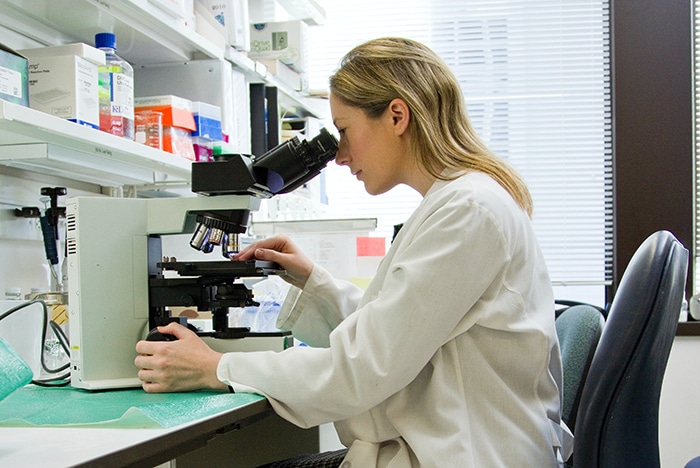Surrogates, intended parents, fertility clinics and lawyers. Contracts, cycle calendars and money! How does surrogacy work and how do all these pieces go together? Let’s demystify it!
WHAT IS SURROGACY?
There are two types of surrogacy – traditional and gestational. The Intended Parents work with a surrogate who becomes pregnant using embryos created with: the intended mother’s ovum or donor ovum, and the intended father’s sperm or donor sperm. A traditional surrogate is genetically related to the child as she acts as an egg donor when the gestational surrogate has no genetic relationship to the baby.
Nowadays, we are usually talking about gestational surrogacy. This is one way that an individual or couple can have a child. Surrogate is simply carrying and growing this baby in her belly for the intended parents.
HOW ARE THE EMBRYOS CREATED?

The intended parents work with a fertility clinic to create their embryos through a process called in vitro fertilization. Eggs are retrieved either from the intended mother or through an egg donor. The eggs are then fertilized at a lab with sperm from the intended father or a sperm donor. The fertilized egg grows rapidly with many cells dividing. It only takes 3-5 days and we have embryos! Those embryos are then frozen for transfer later on into a surrogate.
NOW WE HAVE EMBRYOS, WHAT’S NEXT?
So how does surrogacy work? Intended parents often work with a surrogacy agency like the Surrogacy Center of Philadelphia to find a suitable surrogate to carry their baby. Surrogates undergo an extensive evaluation to ensure that they are physically and emotionally prepared for a surrogacy journey. Their medical records and lifestyle are reviewed, criminal background and credit checks are performed, and they are evaluated by a psychologist who is familiar with the surrogacy process. Both the intended parents and surrogates discuss their expectations of the surrogacy process with the agency.

At the Surrogacy Center of Philadelphia, we also look closely at personalities and which parents would fit well with particular surrogates. It is a little like matchmaking! Both sides have profiles that are given to the other party to review. If everyone is happy to proceed further, then the agency will facilitate a meet up. At the Surrogacy Center of Philadelphia, we always encourage both parties to be very open with each other and also take their time. Sometimes it takes several discussions and meet ups before everyone is ready to proceed – and that’s okay! You should never feel pressured to rush into a surrogacy arrangement. This is a major decision for everyone involved.
IS IT TIME TO GET PREGNANT NOW?
Not quite. While most of our matches seem like they all could be best friends in another life, we still have a few more critical steps to get through. First, the Intended Parents sign an agreement and make a payment to the surrogacy agency. Most agencies require this agreement be signed before any matching takes place. We’re a little different at the Surrogacy Center of Philadelphia. We don’t think you should be paying us a penny until we have a match for you. Once the agency agreement is signed, then it is time to move on to the contract phase.
HERE COME THE LAWYERS.
The Intended Parents and Surrogate sign an agreement with each other. It is called the Gestational Carrier Agreement (GCA). This contract clearly outlines the expectation of all parties in this process, as well as financial obligations. How many embryos will be transferred, how many attempts will be made, how much should the surrogate get for carrying the baby and when are those payments made, who takes custody of the baby in the event that the Intended Parents have died, who pays for insurance, the list goes on and on. As you can see, this is a super complicated contract. As such, you should only work with attorneys that are experienced in this area. So not just your regular family law attorney, but an experienced Assisted Reproductive Technology (ART) lawyer. There is an entire association of them.

At Surrogacy Center of Philadelphia, we work with some of the best. They represent not only the Intended Parents, but the Surrogate. Everyone must have their own attorney. Here’s one more way the Surrogacy Center of Philadelphia is different – we pay for the lawyers. They don’t work for us, but we pay them for you. We do this so that the parties involved never feel like they need to rush through contracts. Take your time, ask the hard questions, we have you covered.
SETTING ASIDE THE MONEY. SECURELY.
A big part of contracts is about money – when does your surrogate get paid and how much. But where does that money sit? Not in the Intended Parents’ checking account. The contract will also clearly state that the surrogate’s compensation must be placed in escrow. Every agency handles escrow differently. Some refer the intended parents to an external escrow firm. Others have an attorney and finance manager that handles escrow internally. Some just set up a checking account at a bank separate from the agency and say that’s an escrow account.
It’s really important to everyone, not just the Intended Parents, but the surrogate too, that an independent escrow account is set up with a licensed, bonded and insured agency. At the Surrogacy Center of Philadelphia, we’re a little more than passionate about financial transparency. We use one of the best escrow firms in the world that specializes in surrogacy. They provide direct deposit and complete transparency for escrow accounts. Login online to your accounts to see your money, anytime.
IT’S CYCLE TIME!
Those embryos that have been frozen would like a much warmer home. Now that contracts are done, the surrogate can go into the fertility clinic for what is called cycling. However, it isn’t as simple as defrosting an embryo and transferring it right in the surrogate. Her body needs to be prepared too – hence the term cycle. The clinic will evaluate the surrogate further to make sure she is completely ready to accept the embryo(s). There’s a lot of bloodwork and ultrasounds. The physician may also visualize her uterine cavity and look for anything that could impact the success of the cycle. Sometimes there’s fluid. Sometimes there’s a cyst. It doesn’t mean that the whole cycle is cancelled or she’s not a good candidate (all of these things are totally normal and can appear in a completely healthy surrogate), but the surrogate may have to delay a transfer until that fluid goes away or the cyst is removed.

The surrogate is then put on birth control pills to control her body’s menstrual cycle. Everything is timed carefully. She begins to take hormones and other supportive medications (prenatals, low dose aspirin, antibiotics). The clinic will keep watching her uterus seeing that she is responding to the medications and that the lining of her uterus is building up to be a comfortable bed for the embryo to grow. Once her body is ready, the embryo is transferred through a tiny catheter into her uterus. She then rests for a day or two, and everyone is on pins and needles.
An agency like the Surrogacy Center of Philadelphia fits into cycling in several ways. One is through communication. We work closely with the clinic and their coordinator, so we know exactly when all appointments are, as well as what medications the surrogate should be taking. We check in with the surrogate to ensure she’s feeling comfortable and understands all instructions provided by the clinic. We attend appointments and give updates to the intended parents. In general, we provide a lot of care and attention to all parties because this feels like the pinnacle of a lot of effort thus far.
PREGNANCY CONFIRMATION
At 7 and 10 days post-transfer, the surrogate takes two blood tests to confirm pregnancy. She must continue her medications for several more weeks, as they support her body as it gets comfortable with its newest resident. A fetal heart rate is then confirmed at 4-6 weeks! Once the fetal heart rate is confirmed, the surrogate begins to receive larger compensation payments typically referred to as her base compensation. The base compensation is divided over 8 months to follow along with the pregnancy.
MANAGING THE PREGNANCY
Once a fetal heart rate is confirmed, the surrogate will continue her care at her normal obstetrician. Intended Parents are welcome to attend appointments with her, but we know this isn’t always possible, especially if they live overseas. At the Surrogacy Center of Philadelphia we often accompany the surrogate to her OBGYN appointments and get to know her care team very well. We encourage Intended Parents to continue to build a healthy, open relationship with their surrogate with direct communication. We are always available to help with communication if requested by either party.
ALMOST TIME FOR THE BIRTH!
Already? We hear this often from our clients. How did it go by so quickly? There still are some things to do before the baby’s arrival. First, it is important that the Intended Parents retain an attorney (often the same one who did their Gestational Carrier Agreement) to do the parentage work. In Pennsylvania, we can get a pre-birth order, which means that the court recognizes the Intended Parents as the legal parents of the baby before the baby makes its arrival. Not every state permits pre-birth orders. It’s important to note that just because a state is a post-birth state doesn’t mean “you aren’t the parents.” This is a huge fear of Intended Parents. These are simply different legal processes, often with different timelines.

In addition to getting the parentage work done, you want to create a birth plan. Your agency should help put together a collaborative document that respects the wishes of the laboring surrogate while also honoring how special this day is for Intended Parents. This birth plan is then provided to the hospital staff because it can be a little confusing when you come into a surrogacy birthing room – there’s a lot of people present, who makes decisions about what?
DELIVERY DAY

Super exciting and also super intimidating! There will be a whole team supporting both the Surrogate and Intended Parents on delivery day. Not only the doctors and nurses, but social workers, risk management, patient administration and the financial office. It is very important that the agency helps streamline communications and paperwork, and advocate for everyone’s needs. At the Surrogacy Center of Philadelphia we have a very close working relationship with the delivery hospital. We often will hold multiple, interdisciplinary meetings so that everyone knows the plan for delivery day, especially if paperwork needs to be expedited or handled in a special manner. We never want surrogates to worry about the quality of care they receive. We never want Intended Parents to worry about having access to and being able to care for their long-awaited baby. Surrogates often go home within 24 hours for a vaginal delivery, but can stay longer in the event of a cesarean delivery or if complications arise. Similarly, the baby will be discharged with parents a day or two after birth.
FOLLOW UP
Is it all over? Yes and no. If the birth occurs in a post-birth parentage order state, there will still be legal proceedings that must be completed so that the Intended Parents’ names are properly on the birth certificate. If in a pre-birth order state, the birth certificate is usually mailed in 4-6 weeks.

However, there’s more to the conclusion of a surrogacy journey than the birth and the legal paperwork. There are a lot of emotions. Being without your belly buddy can be challenging for surrogates, so at the Surrogacy Center of Philadelphia we are in very close contact with surrogates post-delivery making sure they are physically and emotionally doing well. We also check in regularly with our families to make sure their new baby is settling in well at home. If additional supports are needed, we help make those arrangements.
The escrow account and financials also take a couple more months to be closed out. Delivery and nursery bills need to be paid. The surrogate’s post-partum check ups are also covered. Once all bills are processed through insurance and fully paid, a full accounting of the escrow account should be given to the parents and any remaining fund balance should be returned.
CONCLUDING THOUGHTS
Surrogacy is an incredibly rewarding, but complex experience. It is important to have an experienced surrogacy agency like the Surrogacy Center of Philadelphia to guide you through the surrogacy process. If you are considering becoming a surrogate, please visit https://philadelphiasurrogates.com/surrogates/. If you would like more information about our services and how we can help you build your family, please visit https://philadelphiasurrogates.com/intended-parents.
If you still have questions on how surrogacy works, please feel free to contact us directly.










